|

南开校友及各界朋友交流信息的平台 |
|
李宜燮
李宜燮先生(1914-1994),福建人。1936年毕业于北京大学英文系。曾任北京辅仁大学英文系讲师, 广西大学英文系教授。 1952年至逝世一直任南开大学外文系教授,研究生导师。主讲英美文学。李先生对英国浪漫主义诗歌有独到的研究。 他教我们英国诗歌选读,在讲解应该18世纪英国苏格兰诗人彭斯时,声情并茂地朗诵"A Red Red Rose"的情景仍然记忆犹新。李教授的夫人殷辉先生是原外文系阅览室负责人。
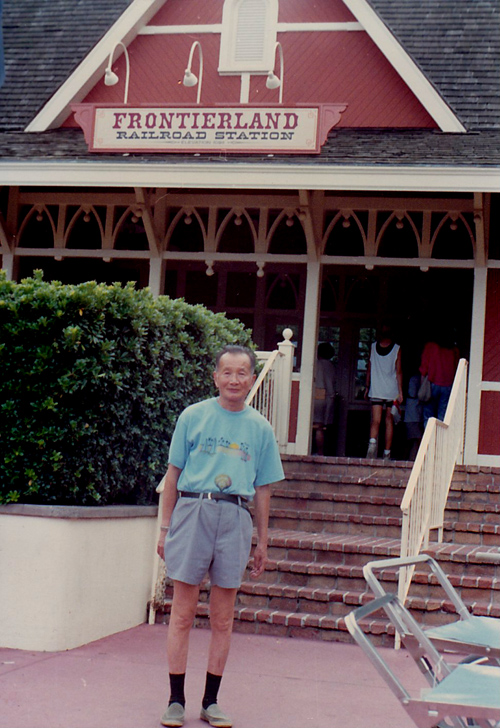
李宜燮教授在美国佛罗里达州最南端的Key West岛, 那里有海明威故居,1990.
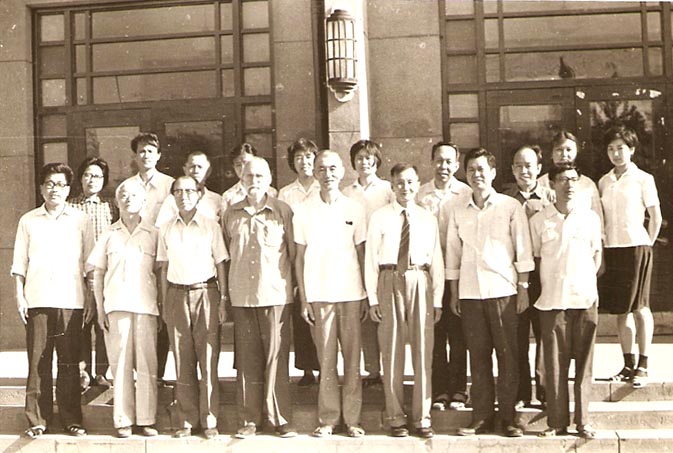
前排右起第三人李先生。前排左起(认得出的)王明江、李霁野、考斯比、娄平、李宜燮、常耀信、柯文礼;第二排有(认得出的)王蕴茹、闫铁铮、蔡丽文、陈本和、田俊生、陈红等。
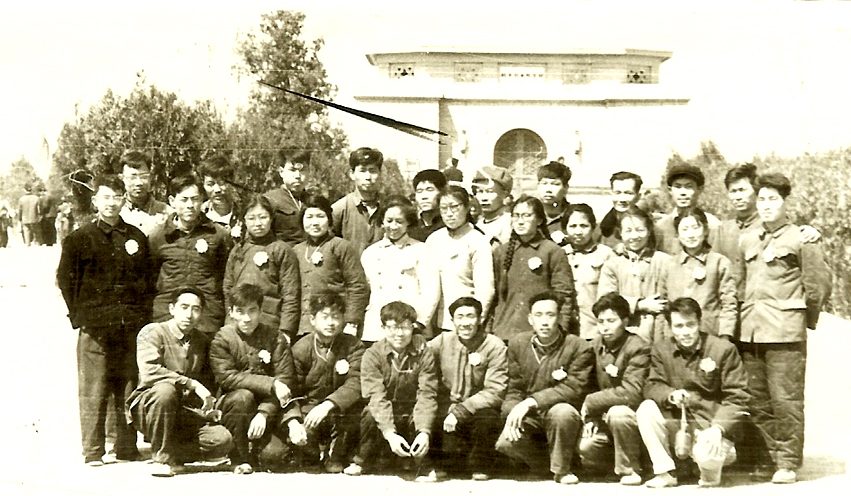
1965届师生毕业教育在天津烈士陵园,第三排右起第四人为李宜燮先生, 1965
 主要著作译著: 主要著作译著:
《镀金时代》(马克吐温);
Glue Lacquer(冯梦龙:《醒世恒言》)
《中国新民歌选》(主译兼审校)
《青春之歌》(主译兼审校,外文出版社,1963)
《美国文学选读》(上下册,主编之一,南开大学出版社,1987)
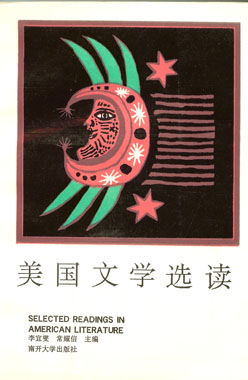 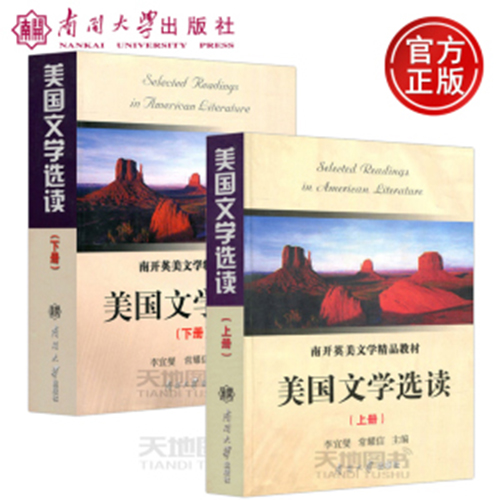
 编后感:我想大家一定还记得, 在教彭斯时李宜燮先生在课堂上朗读”A Red, Red Rose" 这首诗,读"red"和“rose"这两个字带有卷舌音,令我们印象深刻。 编后感:我想大家一定还记得, 在教彭斯时李宜燮先生在课堂上朗读”A Red, Red Rose" 这首诗,读"red"和“rose"这两个字带有卷舌音,令我们印象深刻。
|
English Poet Percy B. Shelley (1792-1822) |
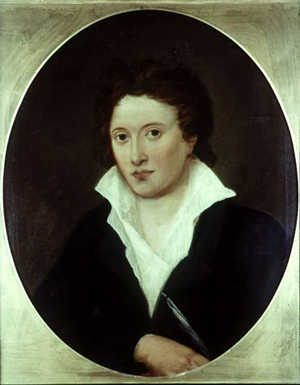 P. B. Shelley
P. B. Shelley
(This portrait is in the public domain.) |
Percy Bysshe Shelley is considered to be one of the most straightforward and drastic poets in the age of Romanticism. Also he is ranked as one of the greatest English poets of this period.
The age of Romanticism covers the period between the French Revolution in 1789 and the coronation of Queen Victoria in 1837. During this period of time there were produced an unexpected richness of writers, artists, and composers throughout Europe such as Goethe, Rousseau, Pushkin, Hugo, Beethoven, Schubert, and many others. Romanticism has certain characteristics, such as emotion, imagination, introspection, our response to the natural world, and the insight of childhood, that differentiates it from the age of Enlightenment where objectivity and reason were emphasized. Three major preoccupations of Romanticism were nature, dreams, and human conditions. During this period of time there were experimentations with existing narcotics. There were some poets who wrote their best works while affected by drugs. A big emphasis was pointed to the foreign and the savage, the poor and.....In the summer of 1816, Shelley and Mary made a second trip to Switzerland. They were prompted to do so by Mary's stepsister Claire Clairmont, who had commenced a liaison with Lord Byron the previous April just before his self-exile on the continent. Byron had lost interest in Claire, and she used the opportunity of meeting the Shelleys as bait to lure him to Geneva. The Shelleys and Byron rented neighbouring houses on the shores of Lake Geneva. Regular conversation with Byron had an invigorating effect on Shelley's output of poetry. While on a boating tour the two took together, Shelley was inspired to write his Hymn to Intellectual Beauty, often considered his first significant production since Alastor. A tour of Chamonix in the French Alps inspired Mont Blanc, a poem in which Shelley claims to have pondered questions of historical inevitability and the relationship between the human mind and external nature. |
HELLAS
by Percy Bysshe Shelly
-
THE world's great age begins anew,
-
The golden years return,
-
The earth doth like a snake renew
-
Her wintry weeds outworn:
-
Heaven smiles, and faiths and empires gleam
-
Like wrecks of a dissolving dream.
-
-
A brighter Hellas rears its mountains
-
From waves serener far;
-
A new Peneus rolls his fountains
-
Against the morning star;
-
Where fairer Tempes bloom, there sleep
-
Young Cyclads on a sunnier deep.
-
-
A loftier Argo claims the main,
-
Fraught with a later prize;
-
Another Orpheus sings again,
-
And loves, and weeps, and dies;
-
A new Ulysses leaves once more
-
Calypso for his native shore.
-
-
O write no more the tale of Troy,
-
If earth Death's scroll must be--
-
Nor mix with Laian rage the joy
-
Which dawns upon the free,
-
Although a subtler Sphinx renew
-
Riddles of death Thebes never knew.
-
-
Another Athens shall arise,
-
And to remoter time
-
Bequeath, like sunset to the skies,
-
The splendour of its prime;
-
And leave, if naught so bright may live,
-
All earth can take or Heaven give.
-
-
Saturn and Love their long repose
-
Shall burst, more bright and good
-
Than all who fell, than One who rose,
-
Than many unsubdued:
-
Not gold, not blood, their altar dowers,
-
But votive tears and symbol flowers.
-
-
O cease! must hate and death return?
-
Cease! must men kill and die?
-
Cease! drain not its dregs the urn
-
Of bitter prophecy!
-
The world is weary of the past--
-
O might it die or rest at last!
-
|
Ode to the West Wind
by Percy B. Shelley |
|
I
O wild West Wind, thou breath of Autumn's being,
Thou, from whose unseen presence the leaves dead
Are driven, like ghosts from an enchanter fleeing,
Yellow, and black, and pale, and hectic red,
Pestilence-stricken multitudes: O thou,
Who chariotest to their dark wintry bed
The winged seeds, where they lie cold and low,
Each like a corpse within its grave, until
Thine azure sister of the Spring shall blow
Her clarion o'er the dreaming earth, and fill
(Driving sweet buds like flocks to feed in air)
With living hues and odors plain and hill:
Wild Spirit, which art moving everywhere;
Destroyer and preserver; hear, oh, hear!
II
Thou on whose stream, 'mid the steep sky's commotion,
Loose clouds like earth's decaying leaves are shed,
Shook from the tangled boughs of Heaven and Ocean,
Angels of rain and lightning: there are spread
On the blue surface of thine aery surge,
Like the bright hair uplifted from the head
Of some fierce Maenad, even from the dim verge
Of the horizon to the zenith's height,
The locks of the approaching storm. Thou dirge
Of the dying year, to which this closing night
Will be the dome of a vast sepulchre,
Vaulted with all thy congregated might
Of vapors, from whose solid atmosphere
Black rain, and fire, and hail will burst: oh, hear!
III
Thou who didst waken from his summer dreams
The blue Mediterranean, where he lay,
Lulled by the coil of his crystalline streams,
Beside a pumice isle in Baiae's bay,
And saw in sleep old palaces and towers
Quivering within the wave's intenser day,
All overgrown with azure moss and flowers
So sweet, the sense faints picturing them! Thou
For whose path the Atlantic's level powers
Cleave themselves into chasms, while far below
The sea-blooms and the oozy woods which wear
The sapless foliage of the ocean, know
Thy voice, and suddenly grow gray with fear,
And tremble and despoil themselves: oh, hear!
IV
If I were a dead leaf thou mightest bear;
If I were a swift cloud to fly with thee;
A wave to pant beneath thy power, and share
The impulse of thy strength, only less free
Than thou, O uncontrollable! If even
I were as in my boyhood, and could be
The comrade of thy wanderings over Heaven,
As then, when to outstrip thy skiey speed
Scarce seemed a vision; I would ne'er have striven
As thus with thee in prayer in my sore need.
Oh, lift me as a wave, a leaf, a cloud!
I fall upon the thorns of life! I bleed!
A heavy weight of hours has chained and bowed
One too like thee: tameless, and swift, and proud.
V
Make me thy lyre, even as the forest is:
What if my leaves are falling like its own!
The tumult of thy mighty harmonies
Will take from both a deep, autumnal tone,
Sweet though in sadness. Be thou, Spirit fierce,
My spirit! Be thou me, impetuous one!
Drive my dead thoughts over the universe
Like withered leaves to quicken a new birth!
And, by the incantation of this verse,
Scatter, as from an unextinguished hearth
Ashes and sparks, my words among mankind!
Be through my lips to unawakened earth
The trumpet of a prophecy! O Wind,
If Winter comes, can Spring be far behind? |
|
|
The awful shadow of some unseen Power
Floats through unseen among us, -- visiting
This various world with as inconstant wing
As summer winds that creep from flower to flower, --
Like moonbeams that behind some piny mountain shower,
It visits with inconstant glance
Each human heart and countenance;
Like hues and harmonies of evening, --
Like clouds in starlight widely spread, --
Like memory of music fled, --
Like aught that for its grace may be
Dear, and yet dearer for its mystery.
Spirit of Beauty, that dost consecrate
With thine own hues all thou dost shine upon
Of human thought or form, -- where art thou gone?
Why dost thou pass away and leave our state,
This dim vast vale of tears, vacant and desolate?
Ask why the sunlight not for ever
Weaves rainbows o'er yon mountain-river,
Why aught should fail and fade that once is shown,
Why fear and dream and death and birth
Cast on the daylight of this earth
Such gloom, -- why man has such a scope
For love and hate, despondency and hope?
No voice from some sublimer world hath ever
To sage or poet these responses given --
Therefore the names of Demon, Ghost, and Heaven,
Remain the records of their vain endeavour,
Frail spells -- whose uttered charm might not avail to sever,
From all we hear and all we see,
Doubt, chance, and mutability.
Thy light alone -- like mist oe'er the mountains driven,
Or music by the night-wind sent
Through strings of some still instrument,
Or moonlight on a midnight stream,
Gives grace and truth to life's unquiet dream.
Love, Hope, and Self-esteem, like clouds depart
And come, for some uncertain moments lent.
Man were immortal, and omnipotent,
Didst thou, unknown and awful as thou art,
Keep with thy glorious train firm state within his heart.
Thou messgenger of sympathies,
That wax and wane in lovers' eyes --
Thou -- that to human thought art nourishment,
Like darkness to a dying flame!
Depart not as thy shadow came,
Depart not -- lest the grave should be,
Like life and fear, a dark reality.
While yet a boy I sought for ghosts, and sped
Through many a listening chamber, cave and ruin,
And starlight wood, with fearful steps pursuing
Hopes of high talk with the departed dead.
I called on poisonous names with which our youth is fed;
I was not heard -- I saw them not --
When musing deeply on the lot
Of life, at that sweet time when winds are wooing
All vital things that wake to bring
News of birds and blossoming, --
Sudden, thy shadow fell on me;
I shrieked, and clasped my hands in ecstasy!
I vowed that I would dedicate my powers
To thee and thine -- have I not kept the vow?
With beating heart and streaming eyes, even now
I call the phantoms of a thousand hours
Each from his voiceless grave: they have in visioned bowers
Of studious zeal or love's delight
Outwatched with me the envious night --
They know that never joy illumed my brow
Unlinked with hope that thou wouldst free
This world from its dark slavery,
That thou - O awful Loveliness,
Wouldst give whate'er these words cannot express.
The day becomes more solemn and serene
When noon is past -- there is a harmony
In autumn, and a lustre in its sky,
Which through the summer is not heard or seen,
As if it could not be, as if it had not been!
Thus let thy power, which like the truth
Of nature on my passive youth
Descended, to my onward life supply
Its calm -- to one who worships thee,
And every form containing thee,
Whom, Spirit fair, thy spells did bind
To fear himself, and love all human kind.
|
|
|
Love's Philosophy
by Percy B. Shelley
|
|
|
The fountains mingle with the river,
And the rivers with the ocean;
The winds of heaven mix forever
With a sweet emotion;
Nothing in the world is single;
All things by a law divine
In another's being mingle--
Why not I with thine?
See, the mountains kiss high heaven,
And the waves clasp one another;
No sister flower could be forgiven
If it disdained its brother;
And the sunlight clasps the earth,
And the moonbeams kiss the sea;--
What are all these kissings worth,
If thou kiss not me?
|
|
|
To A Skylark
by Percy B. Shelley
|
|
|
Hail to thee, blithe Spirit!
Bird thou never wert,
That from Heaven, or near it,
Pourest thy full heart
In profuse strains of unpremeditated art.
Higher still and higher
From the earth thou springest
Like a cloud of fire;
The blue deep thou wingest,
And singing still dost soar, and soaring ever singest.
In the golden lightning
Of the sunken sun
O'er which clouds are bright'ning,
Thou dost float and run,
Like an unbodied joy whose race is just begun.
The pale purple even
Melts around thy flight;
Like a star of Heaven
In the broad daylight
Thou art unseen, but yet I hear thy shrill delight:
Keen as are the arrows
Of that silver sphere,
Whose intense lamp narrows
In the white dawn clear
Until we hardly see--we feel that it is there.
All the earth and air
With thy voice is loud.
As, when night is bare,
From one lonely cloud
The moon rains out her beams, and heaven is overflowed.
What thou art we know not;
What is most like thee?
From rainbow clouds there flow not
Drops so bright to see
As from thy presence showers a rain of melody.
Like a poet hidden
In the light of thought,
Singing hymns unbidden,
Till the world is wrought
To sympathy with hopes and fears it heeded not:
Like a high-born maiden
In a palace tower,
Soothing her love-laden
Soul in secret hour
With music sweet as love, which overflows her bower:
Like a glow-worm golden
In a dell of dew,
Scattering unbeholden
Its aerial hue
Among the flowers and grass, which screen it from the view:
Like a rose embowered
In its own green leaves,
By warm winds deflowered,
Till the scent it gives
Makes faint with too much sweet these heavy-winged thieves.
Sound of vernal showers
On the twinkling grass,
Rain-awakened flowers,
All that ever was
Joyous, and clear, and fresh, thy music doth surpass.
Teach us, sprite or bird,
What sweet thoughts are thine:
I have never heard
Praise of love or wine
That panted forth a flood of rapture so divine.
Chorus hymeneal
Or triumphal chaunt
Matched with thine, would be all
But an empty vaunt--
A thing wherein we feel there is some hidden want.
What objects are the fountains
Of thy happy strain?
What fields, or waves, or mountains?
What shapes of sky or plain?
What love of thine own kind? what ignorance of pain?
With thy clear keen joyance
Languor cannot be:
Shadow of annoyance
Never came near thee:
Thou lovest, but ne'er knew love's sad satiety.
Waking or asleep,
Thou of death must deem
Things more true and deep
Than we mortals dream,
Or how could thy notes flow in such a crystal stream?
We look before and after,
And pine for what is not:
Our sincerest laughter
With some pain is fraught;
Our sweetest songs are those that tell of saddest thought.
Yet if we could scorn
Hate, and pride, and fear;
If we were things born
Not to shed a tear,
I know not how thy joy we ever should come near.
Better than all measures
Of delightful sound,
Better than all treasures
That in books are found,
Thy skill to poet were, thou scorner of the ground!
Teach me half the gladness
That thy brain must know,
Such harmonious madness
From my lips would flow
The world should listen then, as I am listening now!
|
|
|
To Night
by Percy B. Shelley
|
|
|
Swiftly walk o'er the western wave,
Spirit of Night!
Out of the misty eastern cave,
Where, all the long and lone daylight,
Thou wovest dreams of joy and fear,
Which make thee terrible and dear--
Swift be thy flight!
Wrap thy form in a mantle gray,
Star-inwrought!
Blind with thine hair the eyes of day;
Kiss her until she be wearied out,
Then wander o'er city, and sea, and land,
Touching all with thine opiate wand--
Come, long-sought!
When I arose and saw the dawn,
I sighed for thee;
When light rode high, and the dew was gone,
And noon lay heavy on flower and tree,
And the weary day turned to his rest,
Lingering like an unloved guest,
I sighed for thee.
Thy brother Death came, and cried,
Wouldst thou me?
Thy sweet child Sleep, the filmy-eyed,
Murmured like a noontide bee,
Shall I nestle near thy side?
Wouldst thou me?--And I replied,
No, not thee!
Death will come when thou art dead,
Soon, too soon--
Sleep will come when thou art fled;
Of neither would I ask the boon
I ask of thee, beloved Night--
Swift be thine approaching flight,
Come soon, soon!
|
|
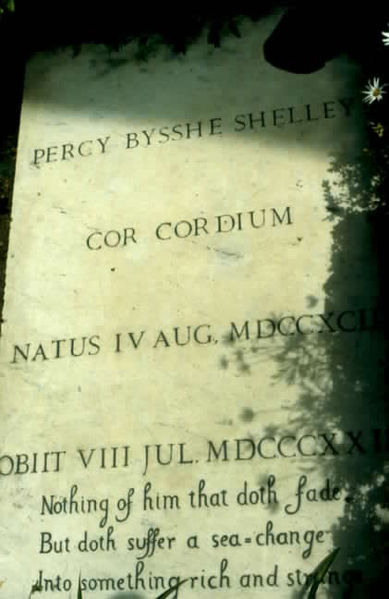
Shelley's gravestone in Rome
(Used under the terms of the GNU Free Documentation License)
|
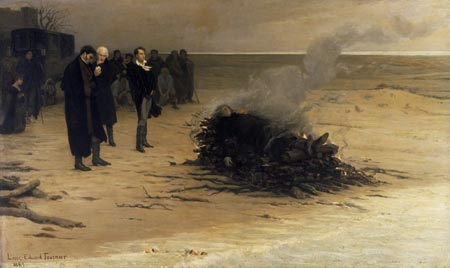
The Funeral of Shelley by Louis Edouard Fournier (1889);
pictured in the centre are, from left, Trelawny, Hunt and Byron
(This work of art is in the public domain.)
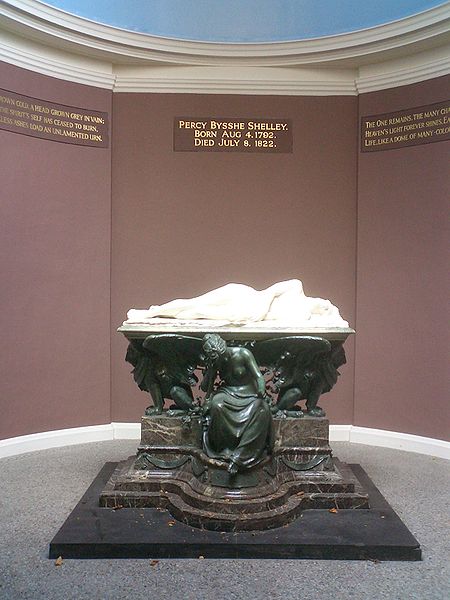
Sculpture by Edward Onslow Ford in the Shelley Memorial
at University College, Oxford. Photo by Jonathan Bowen.
(Used under the terms of the GNU Free Documentation License, Version 1.2)
 
|
|
   
|

